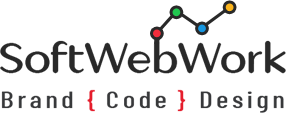PPC Management for Agencies
PC (Pay-Per-Click) Management for agencies involves the process of planning, creating, and optimizing advertising campaigns on behalf of clients to help them achieve their marketing goals. Whether you’re an established digital marketing agency or a freelancer providing PPC services, managing PPC campaigns for clients requires a structured approach. Here’s a step-by-step guide for effective PPC management for agencies:
Client Onboarding and Discovery:
Understand the client’s business, industry, and specific goals.
Determine the target audience and key performance indicators (KPIs) they want to track.
Review any existing PPC campaigns and account history if applicable.
Keyword Research:
Conduct thorough keyword research to identify relevant keywords and search terms.
Create a comprehensive keyword list, considering both short-tail and long-tail keywords.
Group keywords into logical ad groups for better organization.
Account Setup:
Create or optimize the PPC account on the chosen advertising platform (e.g., Google Ads, Bing Ads).
Define campaign goals and budgets based on the client’s objectives.
Set up conversion tracking to measure campaign performance accurately.
Ad Creation:
Craft compelling ad copy that aligns with the client’s brand and speaks to their target audience.
Design visually appealing ad creatives, including images and videos where applicable.
Create variations of ads for A/B testing to identify the most effective messaging.
Bid Management:
Develop a bidding strategy that aligns with the client’s budget and objectives.
Adjust bids based on keyword performance, competition, and seasonality.
Utilize automated bidding strategies if appropriate.
Ad Extensions and Sitelinks:
Implement ad extensions to provide additional information and enhance ad visibility.
Set up site link extensions to direct users to specific landing pages or sections of the client’s website.
Landing Page Optimization:
Ensure that the client’s landing pages are optimized for conversions.
Perform A/B testing on landing page elements, such as headlines, calls to action, and forms.
Quality Score Management:
Focus on improving Quality Scores by aligning keywords, ad copy, and landing pages.
Regularly review and refine ad groups for better relevance.
Ad Scheduling:
If applicable, set ad scheduling to show ads during peak times when the target audience is most active.
Negative Keyword Management:
Continuously identify and add negative keywords to prevent irrelevant clicks.
Use negative keyword lists for better account management.
Campaign Performance Monitoring:
Regularly monitor campaign performance using relevant KPIs (CTR, conversion rate, ROAS).
Identify underperforming keywords, ads, or campaigns that need optimization.
Reporting and Client Communication:
Generate regular reports showcasing campaign performance and progress toward goals.
Schedule meetings with clients to discuss campaign results and strategize improvements.
Competitor Analysis:
Keep an eye on competitors’ advertising strategies and adjust campaigns accordingly.
Look for opportunities to outperform competitors in ad placements and messaging.
Budget Management:
Manage budgets effectively to ensure efficient allocation of funds across campaigns.
Adjust budgets based on performance and seasonality.
